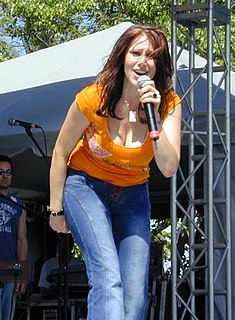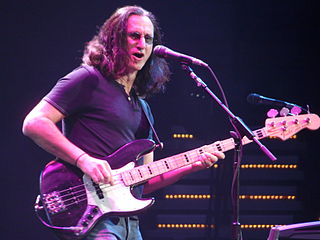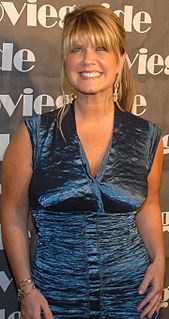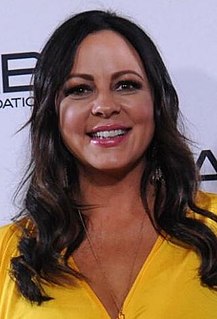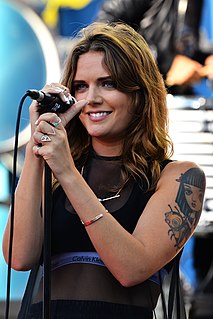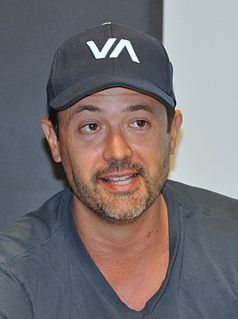A Quote by Tiffany Darwish
I write a lyric, but when I reread it, I think it's awful and either hide it or crumple it up.
Related Quotes
But what I really long to know you do not tell either: what you feel, although I've given you hints by the score of my regard. You like me. You wouldn't waste time or paper on a being you didn't like. But I think I've loved you since we met at your mother's funeral. I want to be with you forever and beyond, but you write that you are too young to marry or too old or too short or too hungry - until I crumple your letters up in despair, only to smooth them out again for a twelfth reading, hunting for hidden meanings.
I am committed now to one thing: lyric sequences. I want the intensity of lyric, but the scope and arc of narrative. so, I think I'll just write sequences for the foreseeable (the Beloved sequence doesn't have a 'plot' so I can just keep adding poems to it, it's like a giant bag I can just put beloved lyrics into - I think there are about 300 of them i've published by now).
I think that the casual reader and the lyric and confession are trickily tied up together. I mean often when I read my students' poems my first impulse is to say, "O, the subject of this pronoun, this 'I,' is whatever kid wrote this poem." The audience for lyric poems is "confessionalized" to some extent. And I think this audience tends to find long narrative poems, for instance, kind of bewildering.
I don't think there's a problem. First of all, I don't think music turns people into social liabilities. Because you hear a lyric - there's no medical proof that a person hearing a lyric is going to act out the lyric. There's also no medical proof that if you hear any collection of vowels and consonants, that the hearing of that collection is going to send you to Hell.
All of these declarations of what writing ought to be, which I had myself-though, thank God I had never committed them to paper-I think are nonsense. You write what you write, and then either it holds up or it doesn't hold up. There are no rules or particular sensibilities. I don't believe in that at all anymore.
Any negative review you write, they'll say, "Oh, you're being so mean." I think the problem with a lot of criticism is that too many critics either write just description or they write in a Mandarin jargon that only a handful of people can understand, or they write happy criticis - everything is good that they write about. I think that's really not good. I think it's damaged a lot of our critical voices.
I typically will work on a lyric in a three-ring binder. On the right side, I'll write the lyric, and on the left side, I put in alternate things...and things that might be alternates or improvements. I'll turn the page and do it again. I'll turn the page and do it again, or incorporate the improvements. Eventually, I end up with some material, and often it needs to be ordered.
